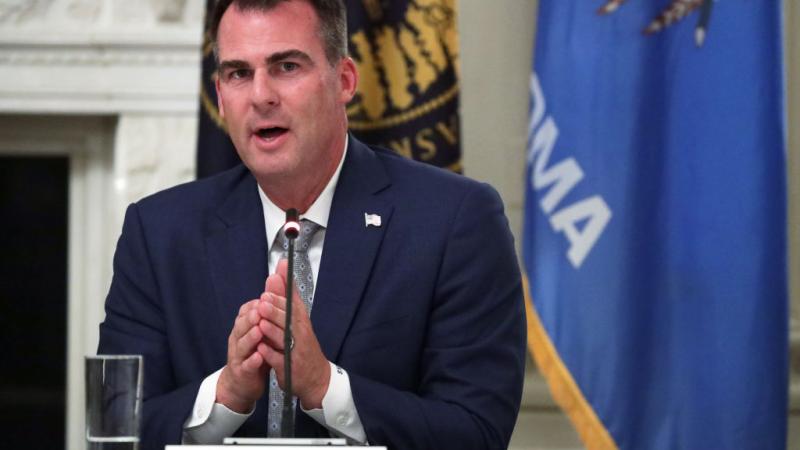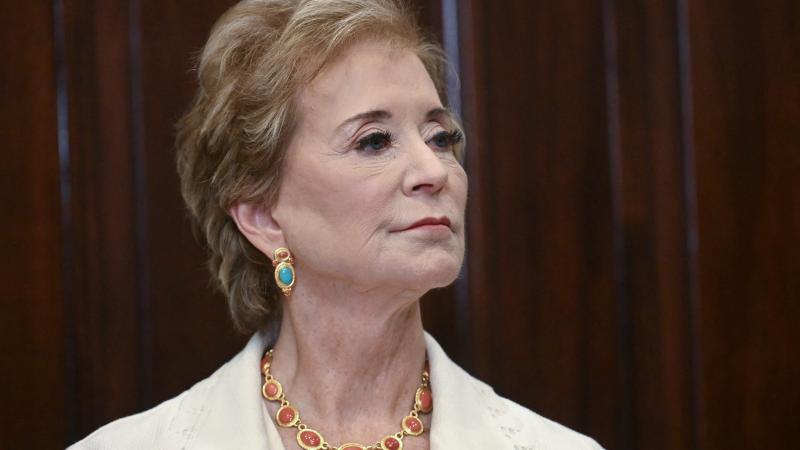Fewer colleges railroad accused students after Trump Title IX change, analysis finds
Legal groups seek to defend regulation in court, warning Biden administration won't do it.
Due process for college students slightly improved after the Trump administration enacted a Title IX regulation last year intended to level the playing field between accusers and accused on campus, according to a new report by the Foundation for Individual Rights in Education (FIRE).
To protect those gains against the Biden administration's nascent regulatory proceeding on Title IX, FIRE and two other legal groups are petitioning the Supreme Court for the right to defend the Trump administration regulation in multiple legal challenges.
FIRE analyzed college disciplinary policies for Title IX, other sexual misconduct and non-sexual offenses at the top 53 colleges in the country, as ranked by U.S. News and World Report.
Forty-four colleges earned a "D" or "F" grade in at least one disciplinary policy, guaranteeing students no more than four of 10 safeguards FIRE considers essential to due process, such as cross-examination and "time to prepare with evidence." That's down from 49 in last year's report.
The new Title IX regulation was a boon for students accused of sexual misconduct in a setting plausibly controlled by the college, with only five colleges in FIRE's tally earning a failing grade for due process in those proceedings.
But elite higher education by and large did not incorporate those heightened protections into other disciplinary policies.
More than 7 in 10 schools earned a failing grade for due process in non-Title IX sexual misconduct cases, such as off-campus sexual assault. The six private schools that also failed on non-sexual cases — Rice University, Boston University, Northwestern, Georgetown, MIT and Notre Dame — did not respond to Just the News queries.
Notre Dame is the worst elite college in America for due process in FIRE's rankings, offering a limited form of "meaningful right to appeal" as the lone due process safeguard outside of Title IX cases.
Out of more than 150 policies reviewed for the report, not one achieved an "A" grade — more than 8 out of 10 due process safeguards. Cornell University and Georgia Institute of Technology led the ranks with "B" grades for all three policies.
"Many institutions went from the already confusing and unfair status quo of having two disciplinary systems with different rules — one for sexual misconduct and one for all other misconduct — to having three such systems, simply adding another set of rules for sexual misconduct governed under the new Title IX regulations," FIRE said in a statement on the report.
Government's defense of "controversial law … may be less than wholehearted"
The civil liberties group joined with Speech First and the Independent Women's Law Center last week to challenge a ruling that blocked them from intervening in a Massachusetts lawsuit against the Trump Title IX regulation.
Because they argue that several provisions of the regulation are "required" by the First Amendment and the 14th Amendment, their interests weren't represented even by the Trump administration, which merely argued the regulation was "consistent" with constitutional principles.
By adopting the Supreme Court's narrow standard for student-on-student sexual harassment, the Department of Education made an "important change of course" from its previous practice of broadly construing sexual harassment and utilizing nonbinding guidance to enforce its interpretations, the petition said.
Yet the 1st U.S. Circuit Court of Appeals upheld a presumption that the Biden administration would "adequately represent" the interests of the three legal groups in preserving the regulation.
This presumption is at odds with precedents of two other appeals courts likely to review ongoing lawsuits against the regulation, the D.C. Circuit and the 9th Circuit, the groups said.
"The circuit split here is particularly troublesome because it is open to exploitation by litigants who might be interested in avoiding potential intervenors," and will file suit in circuits that routinely deny participation by parties whose interests are not represented by the government.
The petition cites a recent warning from another federal judge about the political aspirations of state attorneys general, whose defense of "an unpopular or controversial law ... may be less than wholehearted," especially when the plaintiffs are "politically influential."
If the Supreme Court upholds the 1st Circuit, it will put courts "in the regrettable position of having to weigh the extent to which the tug of political considerations is affecting a governmental entity's litigation strategy."
The groups pointed to the 3rd Circuit's rejection of the presumption of adequate representation in allowing the Little Sisters of the Poor to defend the Trump administration's contraceptive-mandate exemptions against a challenge by Pennsylvania and New Jersey. The Catholic organization won the case last year.
While FIRE's statement says the Biden administration has "repeatedly mischaracterized, criticized, and threatened" its predecessor's regulation, the petition doesn't mention the outsized role the former vice president played in the Obama administration's Title IX policy.
It was Biden who laid the groundwork for the guidance documents more than a decade ago, and then this year nominated the Department of Education official who sought to enforce them to her old job.
As director of the Office for Civil Rights in Obama's second term, Catherine Lhamon threatened to cut off federal funding to colleges that didn't lower evidentiary standards and enact policies that treat accusers more favorably than accused students. The resulting changes at colleges across the country provoked hundreds of lawsuits by accused students.
When the Trump administration released the regulation last spring, Lhamon claimed it would take victims "back to the bad old days ... when it was permissible to rape and sexually harass students with impunity."
At her recent Senate confirmation hearing, Lhamon denied that the Title IX regulation requires a "presumption of innocence," even though the regulation repeatedly says colleges must observe a "presumption of non-responsibility," the administrative term for innocence.
















